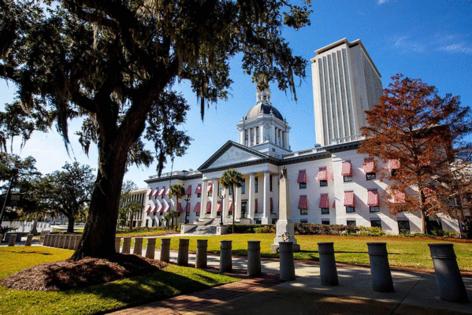Four ways Florida's Legislature may try to quell the state's insurance crisis in 2025
Published in Business News
TALLAHASSEE — Florida’s new legislative leaders were sworn in last month, and addressing the insurance crisis seems to be at the top of their minds. “I want to make sure that impacted Floridians and insurance companies hear me loudly and clearly — we are watching,” Senate President Ben Albritton, R-Wauchula, told senators last month.
“(Floridians) don’t want our state’s insurance laws to be written by insurance companies,” said House Speaker Danny Perez, R-Miami.
There is a growing sentiment in Tallahassee that more action is needed on this top constituent issue. After years of legal reforms making it harder to sue insurance companies, rates have stabilized but haven’t gone down. Rep. Chip LaMarca, R-Fort Lauderdale, posted on X earlier this year that he wanted to “drastically change how we do insurance in Florida.”
But it’s unknown so far what proposals may gain traction at the next legislative session in March.
Here are some things lawmakers may be considering:
Tax breaks to elevate homes
One way to approach insurance is to reduce the risk: Homes that withstand storms don’t cost as much to repair.
Sen. Blaise Ingoglia, R-Spring Hill, said he wants to create a “mass resiliency project” that gives tax incentives to people who want to elevate or harden their homes.
Ingoglia, who will be the chairperson of the Senate’s Banking and Insurance Committee, said he was inspired by the number of elevated homes that survived hurricanes Milton and Helene.
Elevating a home can cost $200,000 or more. Ingoglia’s idea is to allow homesteaded properties in flood zones to have their property taxes frozen for 15 or 20 years if they decide to invest in elevation.
Although the value of the home would go up, the cost to insure it should go down, he said.
“If you build it up, they’re going to have a precipitous drop in homeowners insurance premiums,” Ingoglia said.
Expanding oversight of insurance companies
Florida regulators cap insurance company profits. In response, many of the small Florida-based insurers that dominate the state created elaborate webs of affiliate companies that allow them to siphon money out of the insurer and away from regulators’ eyes.
The state has consistently found that siphoning money out of the insurer has been a prime reason why companies go out of business. Last year, lawmakers dropped a proposal to allow the state to have more insight into insurers’ profits.
Some lawmakers want to try again.
Sen. Don Gaetz, R-Pensacola, said insurance companies “need to have a full and complete balance sheet before the regulators, as opposed to draining money off into subsidiaries and management companies.”
He said he had some ideas to address it, but he wanted to see first how Albritton wanted to approach the issue.
Renewing funding for home hardening
One of the state’s most popular new programs is My Safe Florida Home, which gives free inspections and grants up to $10,000 for people to harden their homes.
When the Legislature this year assigned another $200 million to it, it ran out in less than a month. A similar program, for condominiums, ran out within days.
The state says many people who went through the program saw their insurance premiums go down.
Although the program is popular, there is no guarantee lawmakers will continue to fund it. Lawmakers are already talking about trying to limit state spending in the upcoming legislative session.
The previous iteration of the program, which was created in response to another insurance crisis in the early 2000s, lasted only a few years.
Expanding Citizens coverage to everyone
State-run Citizens Property Insurance is supposed to be the insurer for those who can’t find coverage from a private company. But what if everyone could get it?
It’s an old idea that a bipartisan pair of lawmakers revived in a bill last year. It received only one hearing and didn’t pass, but it has intrigued legislators on both sides of the aisle.
Under the idea, Floridians would pay hurricane premiums to Citizens instead of to private, for-profit insurers. Private insurers would cover things like fire and theft.
When the idea was broached 15 years ago, big insurers like State Farm supported the idea. But small Florida-based insurers who reap big profits from hurricane premiums — and lawmakers against expanding government — opposed it.
Rep. Hillary Cassel, D-Dania Beach, has filed HB 13, which would require Citizens to offer windstorm insurance to every homeowner and condo association.
©2024 Miami Herald. Visit at miamiherald.com. Distributed by Tribune Content Agency, LLC.












Comments